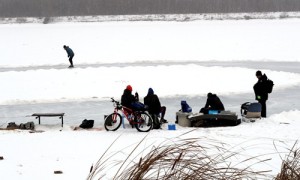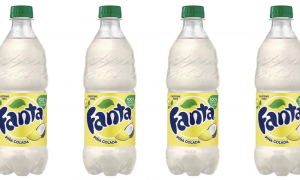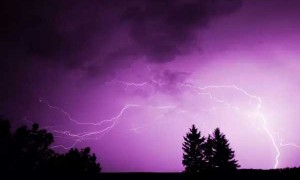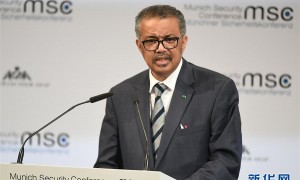A leading candidate for Mongolia's presidency has called for greater state control over mining projects, such as the Oyu Tolgoi copper-gold mine run by Rio Tinto, making mining and foreign investment central issues in the election campaign.
The Democratic Party's new candidate Khaltmaa Battulga, a martial arts star turned business tycoon, opened his campaign with a call for greater government control over the economy and the country's mineral resources.
"Our political environment is very unstable, so our big development policy won't go forward. Because of that, we can't solve unemployment or poverty," Battulga told CI Television in an interview posted on the network's official Facebook account late on Tuesday.
"The government should hire experts and take control of everything, including Oyu Tolgoi and Tavan Tolgoi," he said.
His comments could send shudders through Rio Tinto, which owns 66% of Oyu Tolgoi and may scare off private companies that might be interested in forming strategic partnerships at the giant, fully state-owned Tavan Tolgoi coal mine.
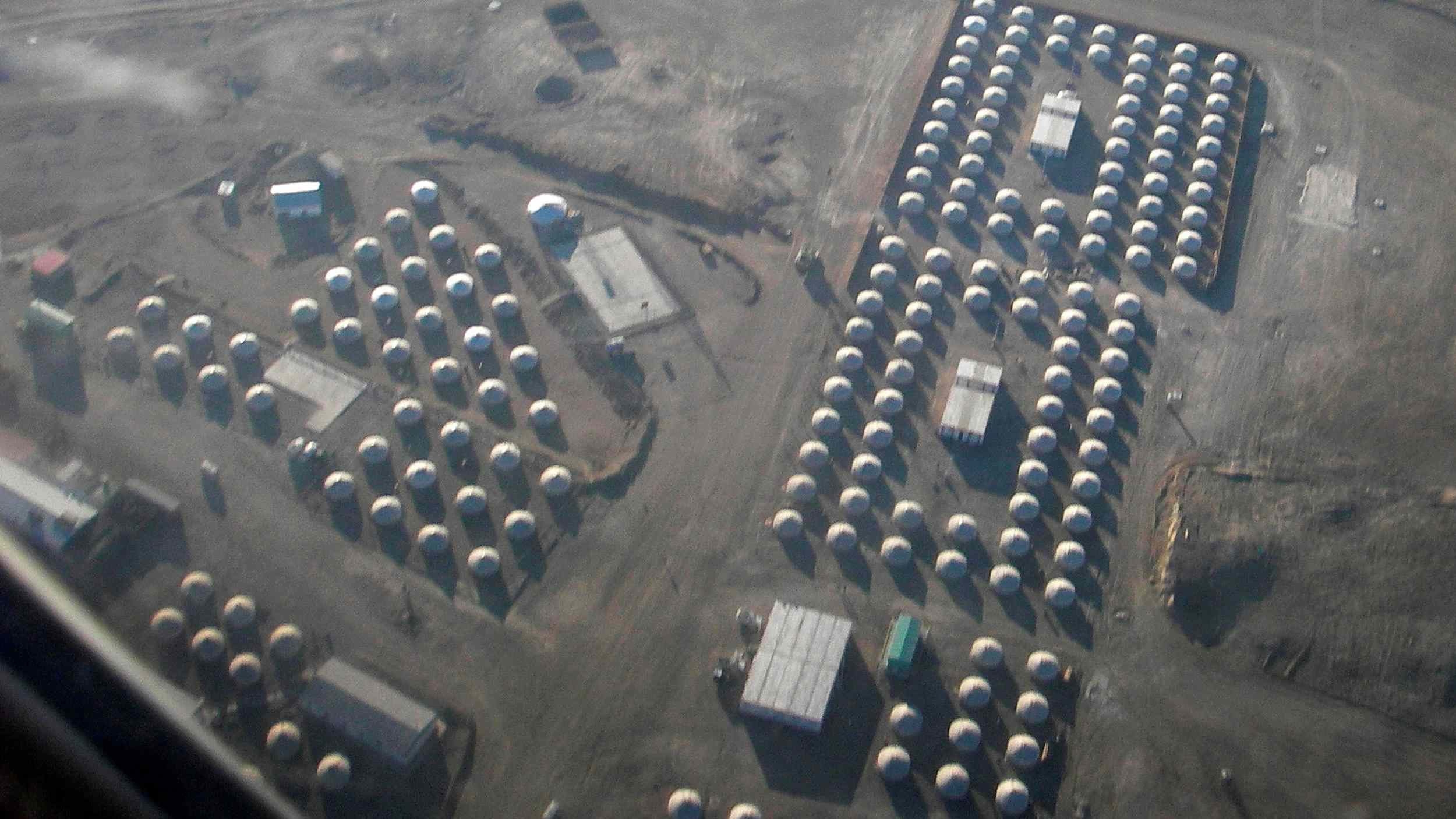
An aerial view shows traditional Mongolian tents that house workers at Oyu Tolgoi copper and gold deposit, Mongolia. /VCG Photo
Oyu Tolgoi LLC, the Mongolia-based company that runs the project, declined to comment. Rio Tinto did not immediately respond to requests for comment either.
Dale Choi, analyst and head of the Altan Bumba Financial Group, said the Mongolian government did not have a good record when it came to managing its assets.
"Most of the SOEs are loss-making businesses, and even those that pay some of the highest taxes to Mongolia are not efficient," he said.
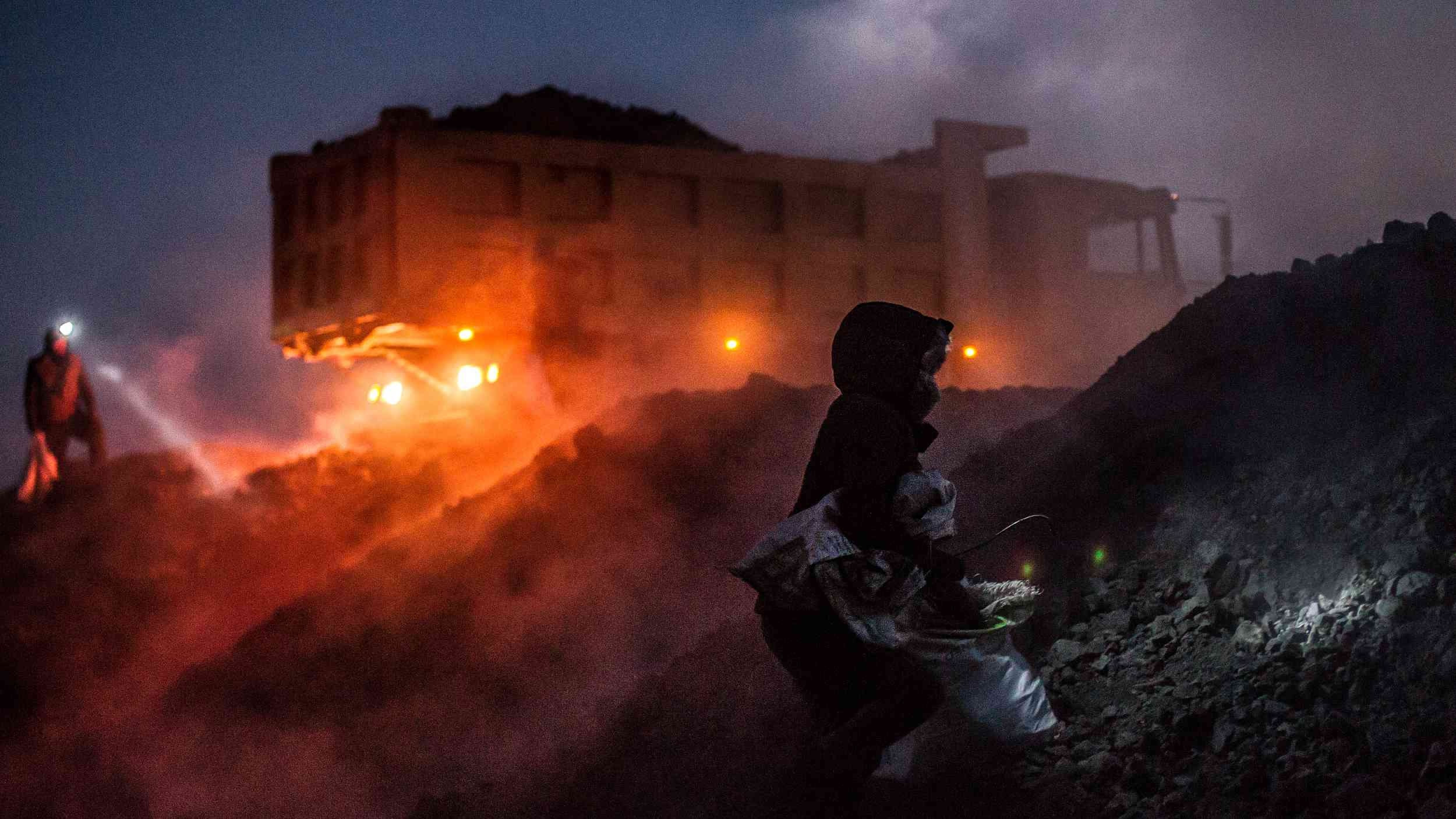
Miners work at Nalaikh, Mongolia. /VCG Photo
The landlocked North Asian country of three million people goes to the polls on June 26, just a month after securing a 5.5 billion US dollar International Monetary Fund (IMF) bailout to lift the economy out economic crisis.
Campaigning began on Tuesday, and painful austerity measures agreed by the Mongolian People's Party (MPP), which runs the government but doesn't hold the presidency, have made an easy target for rivals, as have controversies over deals done with foreign mining companies.
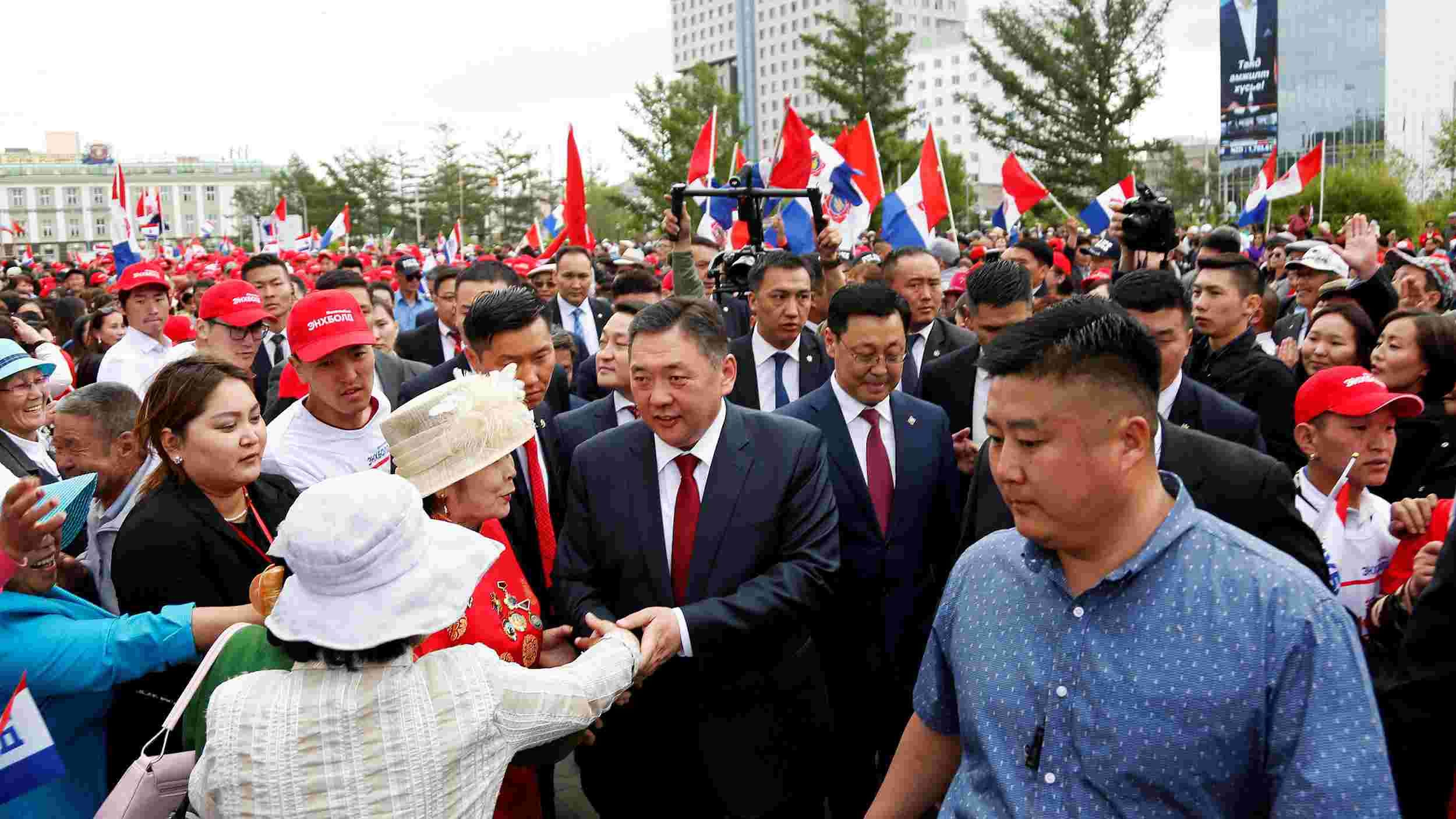
Miyegombo Enkhbold from the ruling Mongolian People's Party shakes hands with supporters as campaigning for Mongolian presidential elections begins in Ulaanbaatar, Mongolia June 6, 2017. /VCG Photo
The ruling MPP candidate Mieygombo Enkhbold, has called for continued "stability", while the government struggles to introduce economic reforms having already raised some taxes and cut spending as part of the IMF bailout deal.
Asked for Enkhbold's position on the mining sector, an MPP spokesman forwarded a statement setting out the party's support for the further development of big mining projects "based on the fundamental interests of our people."
Nationalist politicians have repeatedly called for greater Mongolian control over Oyu Tolgoi, which is forecast to become the world's third-largest copper producer when output peaks at 550,000 tonnes in 2025, up fourfold from this year.
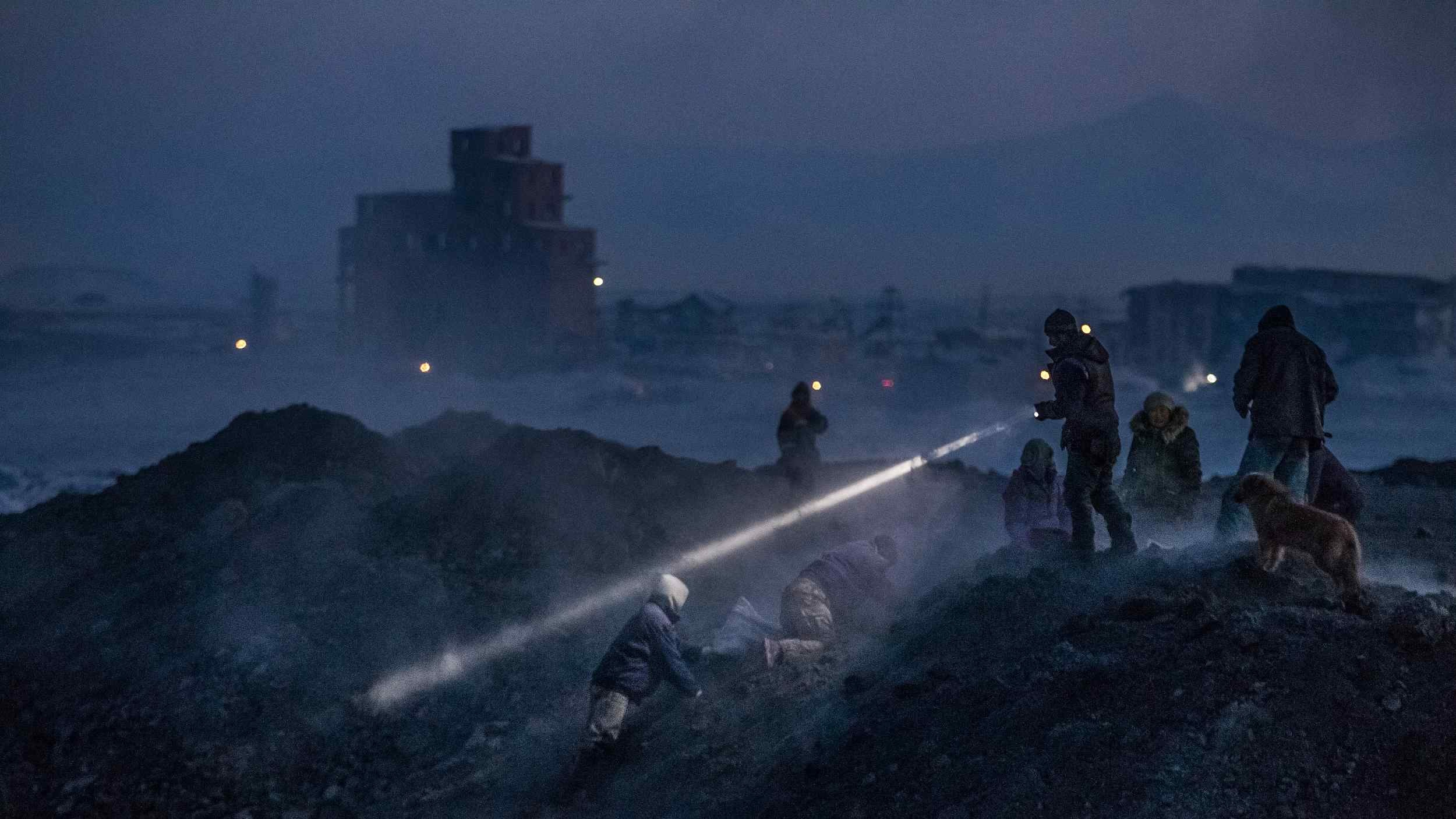
Miners work at Nalaikh, Mongolia. /VCG Photo
A third party candidate, Sainkhuu Ganbaatar, who is expected to win enough votes to force Mongolia's first-ever second round presidential election run-off, has continued his hardline stance when it comes to Mongolia's ownership of its resources.
"The Mongolian people in Mongolia are the real master. This means that Mongolians are the deciders of their natural resources," he said in his manifesto.
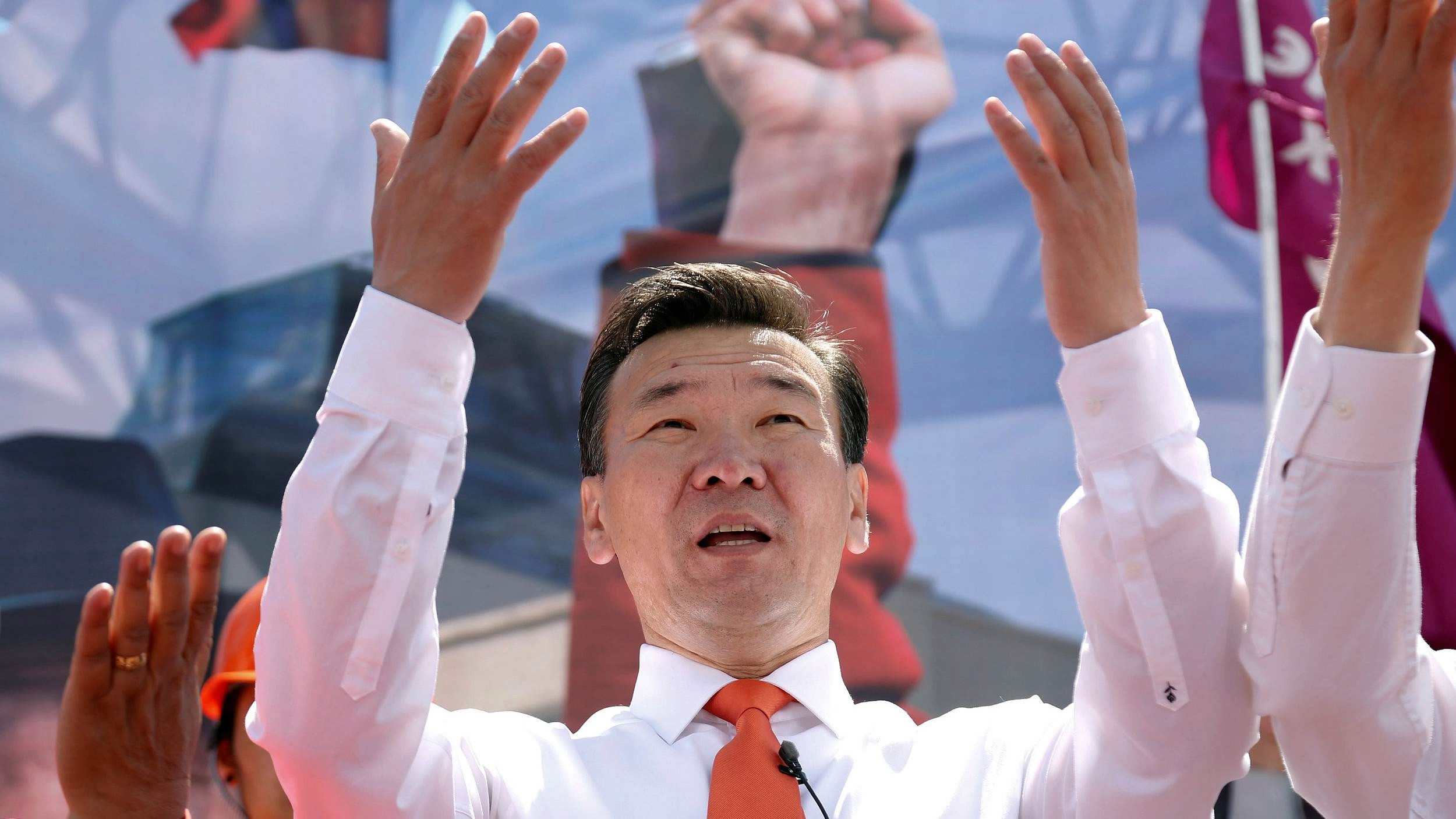
Sainkhuu Ganbaatar of the Mongolian People's Revolutionary Party (MPRP) waves to supporters as he begins campaigns in the Mongolian presidential elections in Ulaanbaatar, Mongolia, June 6, 2017. /VCG Photo
Attempts to renegotiate ownership and a long dispute over taxes and cost overruns led to the suspension of construction on the underground tunnels at Oyu Tolgoi in 2013 and also scared off investment for other projects.
Construction on the project was relaunched after the signing of a new agreement that ended the dispute in 2015.
During its first phase, the open pit mine had already contributed more than 1 billion dollars in taxes and other payments to the government by 2015, while local businesses and suppliers had earned some 4 billion dollars from the project, according to the International Finance Corporation.
(Source: Reuters)


